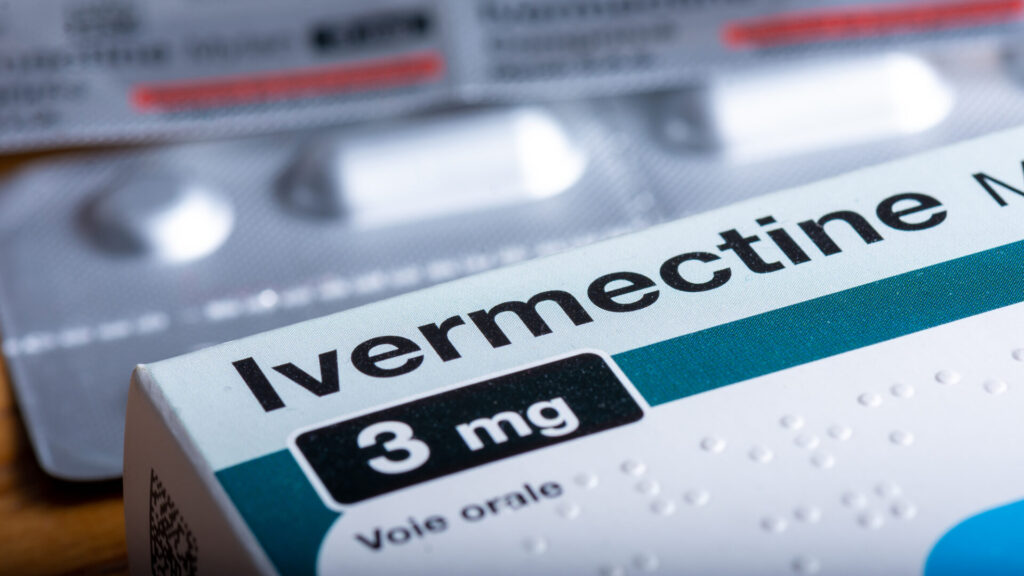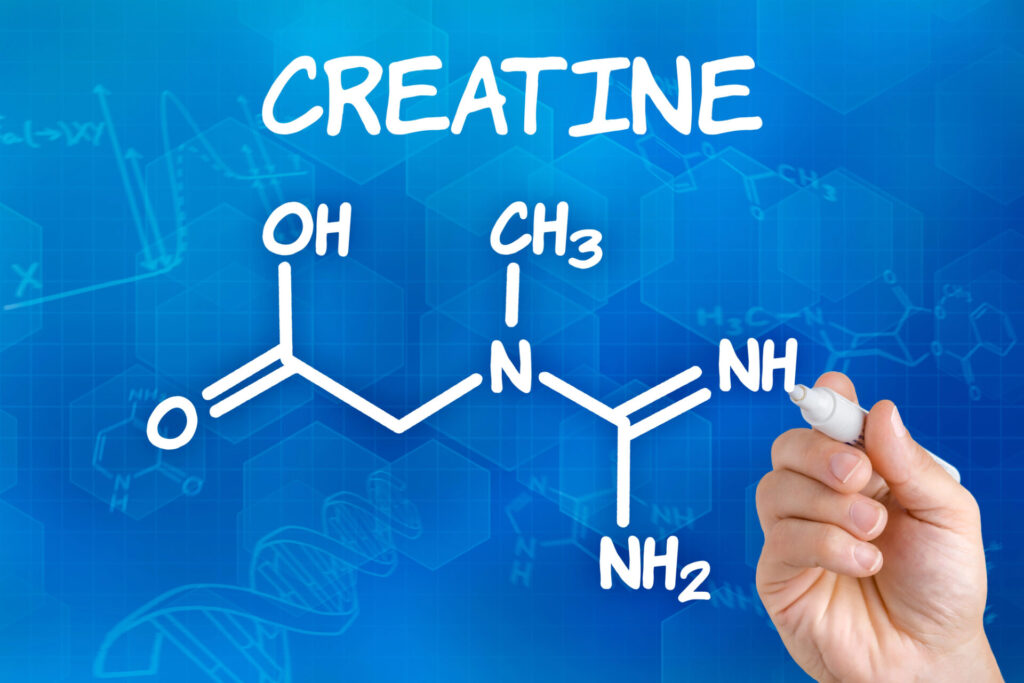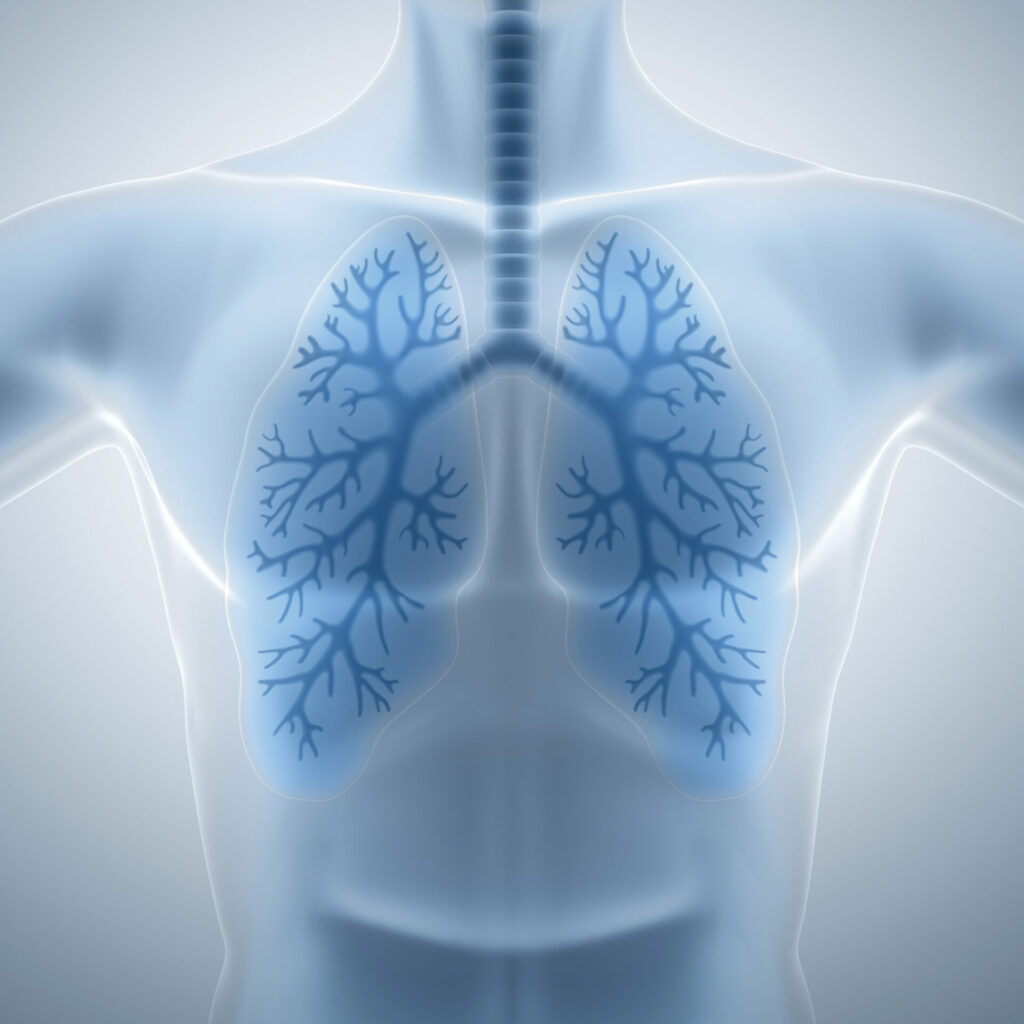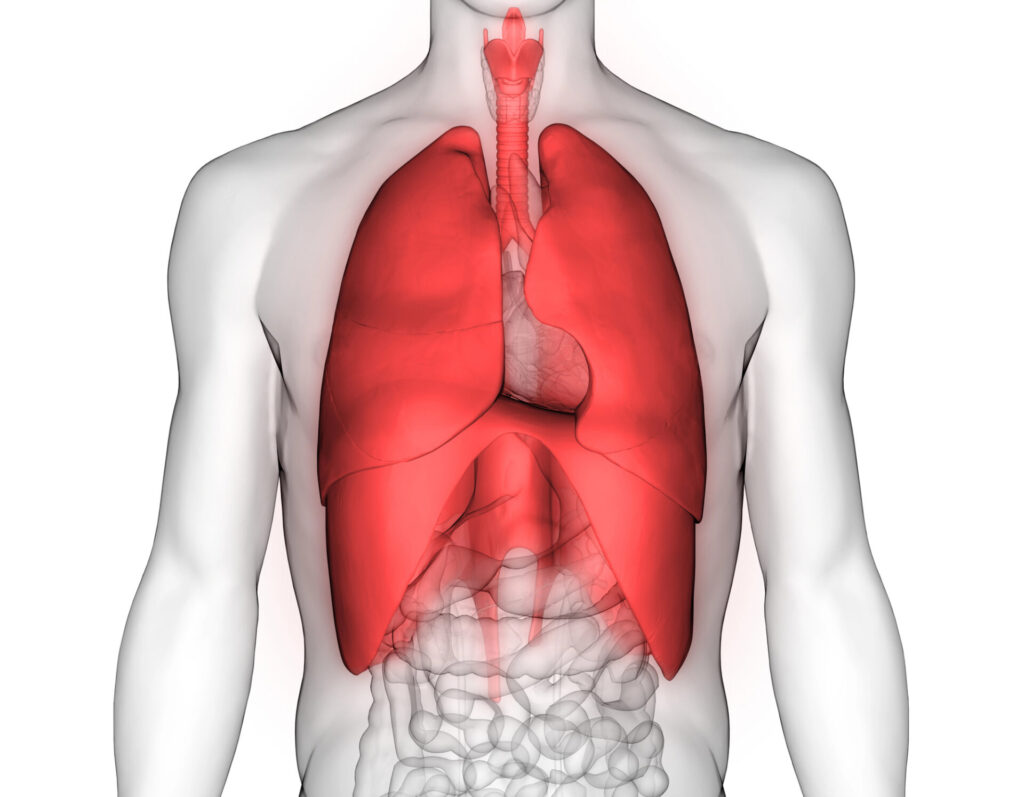As a clinician, you’ve undoubtedly heard the ongoing buzz around ivermectin, and maybe you’re using it in your practice. Since its discovery over 45 years ago, ivermectin has been hailed as a wonder drug with clinical applications from antiparasitic to antiviral, to anticancer and other off-label uses.
In this article, we’ll take a balanced look at the science behind ivermectin, including its origin, mechanism of action, and therapeutic uses. While every promising treatment warrants attention, healthy skepticism remains one of medicine’s most essential tools. The goal is to understand whether ivermectin could be useful in everyday clinical practice, separating hype from evidence.
The Recent Ivermectin Trend
Drug repositioning involves identifying new therapeutic opportunities for existing drugs and is a growing trend.1 Compared to new drug development, repositioning offers benefits including already established safety profiles, well-documented pharmacokinetics, and quick deployment. The COVID-19 pandemic prompted a rapid search for solutions, and ivermectin quickly became a drug of interest.2 There is much debate on its use with COVID—more on that later.
Another area where ivermectin is increasing in popularity is with the recent parasite cleanse trend. I’m part of some interesting social media groups, where I mostly observe rather than engage, to better understand how the public perceives health-related issues. One of the latest trends circulating in these groups is the belief that everyone is infested with parasites and requires frequent cleanses. This has led to a growing number of people purchasing over-the-counter ivermectin—sometimes from pet stores or online sources—as well as other antiparasitics like fenbendazole, to conduct self-directed parasite cleanses.
These narratives often tie parasites to a broad array of nonspecific symptoms, and some go further, claiming that if ivermectin can “cure” conditions like cancer or COVID, then parasites must be the root cause of these diseases. Another rationale that’s circulated is that if you routinely deworm your pets, why wouldn’t you also consider doing this for yourself? This kind of flawed reasoning can be incredibly frustrating for clinicians trying to navigate conversations with patients influenced by these beliefs. Yet this line of thinking is gaining traction among the public.
As healthcare providers, we recognize that many drugs have mechanisms of action beyond their original indications and can be used off-label for various conditions. Understanding these mechanisms is important to better inform patients, especially if they are obtaining medications over the counter (OTC).
Ivermectin Discovery and Antiparasitic Properties
Ivermectin was discovered in 1975 by Japanese microbiologist Satoshi Omura, after isolating an unknown bacterial species Stretomyces avermitilis, from a soil sample. This strain showed potent activity against a parasitic infection in mice, and the active components were purified. The macrocyclic lactones were named avermectins.3,4 In addition to ivermectin, the avermectin family also includes doramectin, selamectin, and moxidectin, with ivermectin being the most successful.5
Ivermectin has since been widely used in veterinary medicine, and in the 1980s, applications for human health were also discovered. 3 Currently, ivermectin is FDA-approved for treating onchocerciasis (river blindness) and strongyloidiasis. In 1987, Merck Laboratories registered ivermectin against onchocerciasis, providing it worldwide at no cost. This has greatly reduced the disease burden in humans.6 In the mid-90s, ivermectin was found to be effective for lymphatic filariasis (Elephantiasis), and the donation program was extended to also cover this disease in 1998.4 These diseases are endemic to Africa and some parts of South America and Southeast Asia. Ivermectin’s discoverers received the Nobel Prize in Medicine in 2015 for its impact in controlling onchocerciasis and lymphatic filariasis, and it is included on the World Health Organization’s (WHO) “List of Essential Medicines.”7
Ivermectin has potent antiparasitic activity against a broad spectrum of nematodes, but not flukes or tapeworms. It also has activity against scabies, lice, mites, ticks, bedbugs, and several other insects.3,4,8 It has shown benefit against malaria, trypanosomiasis (sleeping sickness & Chagas disease), schistosomiasis, trichinosis, myiasis, and leishmaniasis.4,5
In invertebrates (like parasites), ivermectin results in glutamate-gated chloride channel opening, resulting in paralysis and death. Humans do not have glutamate-gated chloride channels, but some channels in the human CNS are weakly sensitive. However, the blood-brain barrier blocks drug access to these channels.9 At higher concentrations, ivermectin interacts with receptors in both invertebrates and vertebrates, including GABA, glycine, histamine, and nicotinic acetylcholine receptors.10
Beyond parasites, ivermectin appears to be effective against many microorganisms and viruses in vitro, even some isolates of Staphylococcus aureus, Chlamydia trachomatis, and Mycobacterium tuberculosis. However, the dose needed to treat would be very high.4,11,12 A study on ivermectin’s effect on the gastrointestinal microbiome showed an increase in the beneficial bacteria Bifidobacterium.13 Other studies show that ivermectin can impact microbiota diversity, which may affect the immune response.12
The Bottom Line: Ivermectin is a well-established antiparasitic medication. Regarding its use in the current parasite cleanse trend, make sure you test first to understand which parasite you’re actually treating. While ivermectin is broad-spectrum, other medications or medication combos may be better suited for certain parasites. And… universal parasite cleansing in non-endemic regions is a topic for another day… stay tuned.
Ivermectin: A Potent Anti-Inflammatory Drug
It turns out that ivermectin is a very versatile drug. In addition to its well-known antiparasitic mechanism, it possesses anti-inflammatory effects, which theoretically, can solve many clinical problems.
Ivermectin inhibits inflammatory cytokine production and upregulates anti-inflammatory IL-10.14,15 It appears that many antihelminthic drugs are good candidates for treating inflammation-based conditions, including pulmonary conditions and pain disorders.16 Antihelminthics disrupt mitogen-activated protein kinases, the synthesis of pro-inflammatory cytokines, leukocyte infiltration, and COX-2 expression.2,16 Hydroxychloroquine, an antiparasitic against malaria, is also used to treat rheumatoid arthritis and lupus, and has become a popular COVID treatment.17 In rats, ivermectin improves inflammation and joint destruction associated with rheumatoid arthritis.18
The avermectins are macrocyclic lactones that possess anti-inflammatory effects. Similar to macrolide antibiotics used in non-infectious lung disease, ivermectin has also shown benefit in lung injury and allergic asthma in mice.15,19-22 A study using ivermectin in patients with Strongyloides stercoralis infection and allergy symptoms showed improvement in allergic symptoms, including pruritis, urticaria, angioedema, rhinoconjunctivitis, and asthma.23
Ivermectin is an FDA-approved topical agent for papulopustular rosacea, and its efficacy is attributed to its anti-inflammatory and anti-parasitic actions. The role of Demodex mites in the pathogenesis of rosacea is not completely understood; however, ivermectin may affect this upstream inflammatory trigger by directly eliminating mites.15
Ivermectin inhibits lipopolysaccharide (LPS)-induced cytokine production. LPS endotoxicity is implicated in numerous diseases. In ICU settings, LPS is associated with bacterial infections, cytokine storm, acute respiratory distress syndrome (ARDS), and sepsis.10
Preclinical studies show ivermectin’s benefit in a broad range of conditions, which may relate to anti-inflammatory and other properties. Conditions include amyotrophic lateral sclerosis, epilepsy, psoriasis, alcohol use disorders, dysglycemia, and hypercholesterolemia.3,4,24 Chinese researchers have applied for an international patent for new human uses of ivermectin, including treating diabetes, hyperlipidemia, and other metabolic diseases.4
The Bottom Line: Thinking about the cause of chronic or acute diseases, isn’t inflammation at the root of most? It’s no surprise that ivermectin, or any substance possessing anti-inflammatory properties, would show benefit. As functional medicine practitioners, we have many tools in our toolbox to address inflammation. Ivermectin is FDA-approved to treat papulopustular rosacea. More data is needed to know when ivermectin would be indicated for other specific conditions.
Ivermectin and Cancer
Numerous in vitro cell culture and animal studies show promise for killing various cancers with ivermectin alone and in combination with other cancer drugs. Mechanisms include:5
- Inhibits proliferation, metastasis, and angiogenesis
- Promotes apoptosis, autophagy, and pyroptosis
- Inhibits tumor stem cells
- Reverses multidrug resistance
- Enhances effect with other chemotherapy drugs
To date, most research is preclinical; clinical trials are needed to learn if ivermectin can be used effectively in cancer treatment. Case studies of various cancers showed symptom relief using ivermectin in combination with other treatments.25
A side note: the public trending idea that ivermectin works to kill cancer because parasites are the root cause is not completely bogus. There are actually carcinogenic parasites, including the human liver flukes Opisthorchis viverrini and Clonorchis sinensis, which induce bile duct cancer in endemic regions such as Southeast Asia. Schistosoma haematobium is found in the Middle East, Africa, and Asia and has been linked to bladder cancer.26,27 Ivermectin is not the recommended treatment for these organisms. So, some parasites can cause cancer, but it’s rare.
The Bottom Line: Preclinical research using ivermectin in cancer treatment shows promise; however, there’s a long way to go to translate this into clinical practice. It’s likely that ivermectin would need to be used in combination with other therapies rather than as a standalone treatment.
Antiviral Properties of Ivermectin and COVID-19
To date, the U.S. Food and Drug Administration (FDA) has not authorized or approved ivermectin for COVID-19 prevention or treatment due to a lack of effectiveness in clinical trials.28 The WHO advises ivermectin to be used only within the context of a clinical trial.29 However, the debate rages on. Despite the FDA’s statement, and in response to the pandemic, recent bills have been signed by state legislatures in Idaho, Arkansas, and Tennessee, making ivermectin available OTC. Many other states are following suit.
Ivermectin has demonstrated in vitro antiviral activity against dengue, Zika, yellow fever, West Nile, HIV, influenza, SARS-CoV-2, and several other RNA and DNA viruses.30,31 A phase 3 trial using ivermectin for dengue did not show clinical efficacy even at doses of 400 microg/kg daily.32
Ivermectin decreases SARS-CoV-2 replication by targeting the importin alpha/beta-1 nuclear transport proteins. However, the effective in vitro dose far exceeds what would be appropriate for clinical use.33,34 By lowering pro-inflammatory cytokine production, ivermectin may also decrease the cytokine storm and ARDS associated with severe COVID-19.2
All of this is well and good in vitro, but how does ivermectin perform in humans? Some argue that meta-analysis and systematic reviews are considered the strongest level of evidence for or against an intervention. Early meta-analyses showed statistically significant reductions in COVID mortality, time to clinical recovery, and time to viral clearance.7,35 Not long after, an “expression of concern” was published regarding inaccurate data collection and/or reporting, basically highlighting a flaw in meta-analytic research.36 Several articles have since been retracted or withdrawn due to poor-quality data.33,37
Fast-forward several randomized controlled trials, systematic reviews, and meta-analyses later, and the results are somewhat disappointing—there are still conflicting findings, but now most data point towards no benefit of ivermectin for COVID-19. Ivermectin does not appear to provide statistically significant improvement in viral clearance, disease severity, need for mechanical ventilation, need for ICU, hospital duration, incidence of mortality, or symptom resolution. Some individual studies show a benefit, possibly in mortality reduction, but may have had a high risk of bias according to meta-analyses.2,17,33,38-40
Eager to help patients, clinicians and governments worldwide began distributing ivermectin early in the COVID pandemic despite a lack of well-designed clinical trials.41-44 Many clinicians successfully used ivermectin throughout the pandemic and in post-COVID and post-vaccination protocols. The Front Line COVID-19 Critical Care (FLCCC) (now renamed Independent Medical Alliance) protocol and other similar protocols are repeatedly shared in medical chat groups. Co-founders of this organization, Dr. Pierre Kory and Dr. Paul Marik emphasize the importance of considering the totality of evidence, recognizing all types of studies have their flaws and biases. According to their website, “This approach involves assessing all available data from clinical trials, observational studies, and real-world evidence to form a comprehensive understanding of the drug’s impact.”
There was a recent settlement between the FDA and clinicians saying the FDA overstepped its regulatory authority during the pandemic, arguing that off-label prescribing rights should be protected and not politicized.
The Bottom Line: The overall sense is that ivermectin may be best used as an adjunct to treat viral illness, including COVID, versus as a monotherapy.2 This is where protocols are being shared among clinicians, which include evidence-based supplements and other medications. The peer-reviewed literature lags in studying effective medication and/or supplement combinations involving ivermectin.
Ivermectin Safety
In general, ivermectin is safe and well-tolerated when taken at the recommended doses. The highest FDA-approved dose is 200 microg/kg.6,45 However, it’s still generally well tolerated at higher doses, including those up to 10 times higher.9,45,46 Several studies reporting safety data show no significant difference in adverse events between ivermectin and the comparator.47
The ivermectin drug label notes that fatigue, neurotoxicity, skin, and GI symptoms are the most common side effects. An overdose can cause neurotoxicity, confusion, disorientation, and death. In patients who have worms, a die-off reaction is possible, causing allergic and inflammatory responses.48
Pharmacokinetic data shows that ivermectin is metabolized in the liver and excreted almost exclusively in the stool over 12 days. Its plasma half-life is approximately 18 hours.48
During the pandemic, interest in ivermectin rose substantially, with many using OTC veterinary formulations for human use. Poison control centers worldwide began receiving more calls related to ivermectin exposure, and symptoms included GI distress, confusion, ataxia, dizziness, vision symptoms, rash, weakness, hypotension, and seizures. Symptoms ranged from mild to severe, and many people were hospitalized, with some requiring intensive care. Those taking larger initial and veterinary doses had more severe effects than prescribed human doses. Veterinary medicines can contain inactive ingredients not tested in humans and tend to be higher doses for large animals.49-52
Is Ivermectin the Answer?
There’s no doubt that ivermectin’s antiparasitic benefits have played a major role in improving global public health. Ivermectin is also FDA-approved for rosacea and head lice. The jury is still out on its use in COVID. All other demonstrated benefits at this point are in vitro or animal studies. It’s important to remember that the overall success rate of in vitro studies leading to successful human treatments is quite low and can be due to dosing or delivery issues.4,34,53 Outside of its antiparasitic mechanisms, its anti-inflammatory properties may make ivermectin a good adjunct to other therapies; however, more research is needed.
References:
- Jourdan JP, Bureau R, Rochais C, Dallemagne P. Drug repositioning: a brief overview. The Journal of pharmacy and pharmacology. 2020;72(9):1145-1151.
- Satyam SM, El-Tanani M, Patni MA, et al. Repurposing Anthelmintic Drugs for COVID-19 Treatment: A Comprehensive Meta-Analysis of Randomized Clinical Trials on Ivermectin and Mebendazole. Antibiotics (Basel, Switzerland). 2025;14(5).
- Laing R, Gillan V, Devaney E. Ivermectin – Old Drug, New Tricks? Trends in parasitology. 2017;33(6):463-472.
- Crump A. Ivermectin: enigmatic multifaceted ‘wonder’ drug continues to surprise and exceed expectations. The Journal of antibiotics. 2017;70(5):495-505.
- Tang M, Hu X, Wang Y, et al. Ivermectin, a potential anticancer drug derived from an antiparasitic drug. Pharmacological research : the official journal of the Italian Pharmacological Society. 2021;163:105207.
- González Canga A, Sahagún Prieto AM, Diez Liébana MJ, Fernández Martínez N, Sierra Vega M, García Vieitez JJ. The pharmacokinetics and interactions of ivermectin in humans–a mini-review. The AAPS journal. 2008;10(1):42-46.
- Kory P, Meduri GU, Varon J, Iglesias J, Marik PE. Review of the Emerging Evidence Demonstrating the Efficacy of Ivermectin in the Prophylaxis and Treatment of COVID-19. American journal of therapeutics. 2021;28(3):e299-e318.
- Crump A, Ōmura S. Ivermectin, ‘wonder drug’ from Japan: the human use perspective. Proceedings of the Japan Academy Series B, Physical and biological sciences. 2011;87(2):13-28.
- Smit MR, Ochomo E, Aljayyoussi G, et al. Efficacy and Safety of High-Dose Ivermectin for Reducing Malaria Transmission (IVERMAL): Protocol for a Double-Blind, Randomized, Placebo-Controlled, Dose-Finding Trial in Western Kenya. JMIR research protocols. 2016;5(4):e213.
- Kaur B, Blavo C, Parmar MS. Ivermectin: A Multifaceted Drug With a Potential Beyond Anti-parasitic Therapy. Cureus. 2024;16(3):e56025.
- Ashraf S, Chaudhry U, Raza A, Ghosh D, Zhao X. In vitro activity of ivermectin against Staphylococcus aureus clinical isolates. Antimicrobial resistance and infection control. 2018;7:27.
- Belo TCA, Silva EN, Corsetti PP, de Almeida LA. Ivermectin impact over gut microbiota diversity: a comprehensive and updated analysis from pre-clinical and clinical evaluations. The Microbe. 2025:100318.
- Hazan S, Papousis A, Sfera A, Borody TJ. S241 Treatment with Ivermectin Increases the Population of Bifidobacterium in the Gut. Official journal of the American College of Gastroenterology| ACG. 2023;118(10S):S180-S181.
- Ci X, Li H, Yu Q, et al. Avermectin exerts anti-inflammatory effect by downregulating the nuclear transcription factor kappa-B and mitogen-activated protein kinase activation pathway. Fundamental & clinical pharmacology. 2009;23(4):449-455.
- Stein L, Kircik L, Fowler J, et al. Efficacy and safety of ivermectin 1% cream in treatment of papulopustular rosacea: results of two randomized, double-blind, vehicle-controlled pivotal studies. Journal of drugs in dermatology : JDD. 2014;13(3):316-323.
- Rodrigues D, Porto JCS, Dos Santos IL, Filho J, Ferreira PMP. Repositioning anthelmintics for the treatment of inflammatory-based pathological conditions. Inflammopharmacology. 2025;33(2):551-571.
- Sansone NMS, Boschiero MN, Marson FAL. Efficacy of Ivermectin, Chloroquine/Hydroxychloroquine, and Azithromycin in Managing COVID-19: A Systematic Review of Phase III Clinical Trials. Biomedicines. 2024;12(10).
- Khan MUA, Akhtar T, Naseem N, Aftab U, Hussain S, Shahzad M. Evaluation of therapeutic potential of ivermectin against complete Freund’s adjuvant-induced arthritis in rats: Involvement of inflammatory mediators. Fundamental & clinical pharmacology. 2023;37(5):971-982.
- Yanagihara K, Kadoto J, Kohno S. Diffuse panbronchiolitis–pathophysiology and treatment mechanisms. International journal of antimicrobial agents. 2001;18 Suppl 1:S83-87.
- Patel PH, Hashmi MF. Macrolides. In: StatPearls. Treasure Island (FL) ineligible companies. Disclosure: Muhammad Hashmi declares no relevant financial relationships with ineligible companies.: StatPearls PublishingCopyright © 2025, StatPearls Publishing LLC.; 2025.Ma Y, Xu X, Wu H, et al. Ivermectin contributes to attenuating the severity of acute lung injury in mice. Biomedicine & pharmacotherapy = Biomedecine & pharmacotherapie. 2022;155:113706.
- Yan S, Ci X, Chen N, et al. Anti-inflammatory effects of ivermectin in mouse model of allergic asthma. Inflammation research : official journal of the European Histamine Research Society [et al]. 2011;60(6):589-596.
- Gupta R, Rampur L, Rosenstreich DL, Hudes G, Jariwala S. The Role of Ivermectin in Patients with Co-Existing Allergies and Strongyloides Stercoralis Infection. Journal of Allergy and Clinical Immunology. 2015;135(2):AB59.
- Ma B, Gu C, Lu R, et al. Inhibition of KPNA2 by ivermectin reduces E2F1 nuclear translocation to attenuate keratinocyte proliferation and ameliorate psoriasis-like lesions. International immunopharmacology. 2024;143(Pt 1):113360.
- Ishiguro T, Ishiguro RH, Ishiguro M, Toki A, Terunuma H. Synergistic Anti-tumor Effect of Dichloroacetate and Ivermectin. Cureus. 2022;14(2):e21884.
- Smout MJ, Sotillo J, Laha T, et al. Carcinogenic Parasite Secretes Growth Factor That Accelerates Wound Healing and Potentially Promotes Neoplasia. PLoS Pathog. 2015;11(10):e1005209.
- ACS. Parasites that Can Lead to Cancer. 2016; https://www.cancer.org/cancer/risk-prevention/infections/infections-that-can-lead-to-cancer/parasites.html.
- FDA. Ivermectin and COVID-19. Consumer Updates 2024; https://www.fda.gov/consumers/consumer-updates/ivermectin-and-covid-19. Accessed June 16, 2025.
- WHO. WHO advises that ivermectin only be used to treat COVID-19 within clinical trials. 2021; https://www.who.int/news-room/feature-stories/detail/who-advises-that-ivermectin-only-be-used-to-treat-covid-19-within-clinical-trials. Accessed June 20, 2025.
- Caly L, Druce JD, Catton MG, Jans DA, Wagstaff KM. The FDA-approved drug ivermectin inhibits the replication of SARS-CoV-2 in vitro. Antiviral research. 2020;178:104787.
- Heidary F, Gharebaghi R. Ivermectin: a systematic review from antiviral effects to COVID-19 complementary regimen. The Journal of antibiotics. 2020;73(9):593-602.
- Suputtamongkol Y, Avirutnan P, Mairiang D, et al. Ivermectin Accelerates Circulating Nonstructural Protein 1 (NS1) Clearance in Adult Dengue Patients: A Combined Phase 2/3 Randomized Double-blinded Placebo Controlled Trial. Clinical infectious diseases : an official publication of the Infectious Diseases Society of America. 2021;72(10):e586-e593.
- Deng J, Zhou F, Ali S, et al. Efficacy and safety of ivermectin for the treatment of COVID-19: a systematic review and meta-analysis. QJM : monthly journal of the Association of Physicians. 2021;114(10):721-732.
- Schmith VD, Zhou JJ, Lohmer LRL. The Approved Dose of Ivermectin Alone is not the Ideal Dose for the Treatment of COVID-19. Clinical pharmacology and therapeutics. 2020;108(4):762-765.
- Bryant A, Lawrie TA, Dowswell T, et al. Ivermectin for Prevention and Treatment of COVID-19 Infection: A Systematic Review, Meta-analysis, and Trial Sequential Analysis to Inform Clinical Guidelines. American journal of therapeutics. 2021;28(4):e434-e460.
- Manu P. Expression of Concern for Kory P, Meduri GU, Varon J, Iglesias J, Marik PE. Review of the Emerging Evidence Demonstrating the Efficacy of Ivermectin in the Prophylaxis and Treatment of COVID-19. Am J Ther. 2021;28(3): e299-e318. American journal of therapeutics. 2022;29(2):e231.
- Elgazzar A, Eltaweel A, Youssef SA, Hany B, Hafez M, Moussa H. WITHDRAWN: Efficacy and Safety of Ivermectin for Treatment and prophylaxis of COVID-19 Pandemic. Research Square. 2020.
- Roman YM, Burela PA, Pasupuleti V, Piscoya A, Vidal JE, Hernandez AV. Ivermectin for the Treatment of Coronavirus Disease 2019: A Systematic Review and Meta-analysis of Randomized Controlled Trials. Clinical infectious diseases : an official publication of the Infectious Diseases Society of America. 2022;74(6):1022-1029.
- Marcolino MS, Meira KC, Guimarães NS, et al. Systematic review and meta-analysis of ivermectin for treatment of COVID-19: evidence beyond the hype. BMC infectious diseases. 2022;22(1):639.
- Shafiee A, Teymouri Athar MM, Kohandel Gargari O, Jafarabady K, Siahvoshi S, Mozhgani SH. Ivermectin under scrutiny: a systematic review and meta-analysis of efficacy and possible sources of controversies in COVID-19 patients. Virology journal. 2022;19(1):102.
- Lind JN, Lovegrove MC, Geller AI, Uyeki TM, Datta SD, Budnitz DS. Increase in Outpatient Ivermectin Dispensing in the US During the COVID-19 Pandemic: A Cross-Sectional Analysis. Journal of general internal medicine. 2021;36(9):2909-2911.
- Burns JE, Dahlen A, Bio LL, et al. Prescribing Patterns of Nonrecommended Medications for Children With Acute COVID-19. Pediatrics. 2024;153(6).
- Requejo Domínguez JA, Mino-León D, Wirtz VJ. Quality of clinical evidence and political justifications of ivermectin mass distribution of COVID-19 kits in eight Latin American countries. BMJ global health. 2023;8(5).
- Samajdar SS, Mukherjee S, Mondal T, et al. Ivermectin and Hydroxychloroquine for Chemo-Prophylaxis of COVID-19: A Questionnaire Survey of Perception and Prescribing Practice of Physicians vis-a-vis Outcomes. The Journal of the Association of Physicians of India. 2021;69(11):11-12.
- Guzzo CA, Furtek CI, Porras AG, et al. Safety, tolerability, and pharmacokinetics of escalating high doses of ivermectin in healthy adult subjects. J Clin Pharmacol. 2002;42(10):1122-1133.
- Donfo-Azafack C, Nana-Djeunga HC, Wafeu-Sadeu G, Dongmo-Yemele R, Kamgno J. Successful management of poisoning with ivermectin (Mectizan) in the Obala health district (Centre Region, Cameroon): a case report. Journal of medical case reports. 2023;17(1):141.
- Wentzel H, Wang J, Dayanamby A, et al. 529. Systematic Review and Meta-Analysis of Ivermectin Safety Profile in COVID-19 Trials. Open Forum Infect Dis. 2021;8(Suppl 1):365. doi: 310.1093/ofid/ofab1466.1728. eCollection 2021 Nov.
- NIH. Label: Ivermectin tablet. 2025; https://dailymed.nlm.nih.gov/dailymed/drugInfo.cfm?setid=e88adfbc-e375-4fea-827e-6ec51ed6fd0a.
- Temple C, Hoang R, Hendrickson RG. Toxic Effects from Ivermectin Use Associated with Prevention and Treatment of Covid-19. The New England journal of medicine. 2021;385(23):2197-2198.
- Hoang R, Temple C, Correia MS, Clemons J, Hendrickson RG. Characteristics of ivermectin toxicity in patients taking veterinary and human formulations for the prevention and treatment of COVID-19. Clinical toxicology (Philadelphia, Pa). 2022;60(12):1350-1355.
- Pillay-Fuentes Lorente V, Voigt G, Du Plessis CE, et al. Ivermectin exposures reported to the Poisons Information Helpline in South Africa during the COVID-19 pandemic. South African medical journal = Suid-Afrikaanse tydskrif vir geneeskunde. 2022;112(8):522-525.
- Farah R, Kazzi Z, Brent J, Burkhart K, Wax P, Aldy K. Ivermectin associated adverse events in the treatment and prevention of COVID-19 reported to the FACT pharmacovigilance project. Clinical toxicology (Philadelphia, Pa). 2022;60(8):942-946.
- Sun D, Gao W, Hu H, Zhou S. Why 90% of clinical drug development fails and how to improve it? Acta pharmaceutica Sinica B. 2022;12(7):3049-3062.





